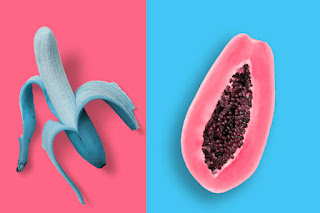Yet despite the fact that half of all new STI cases in the U.S. are found in young adults ages 15 to 24, according to the Centers for Disease Control and Prevention (CDC)— and positive cases have reached an all-time high for the sixth year in a row — there are still many who find the topic too taboo and shameful to discuss.
As a consequence, STIs such as herpes, chlamydia, HPV and gonorrhea are routinely surrounded by stigmatizing language, such as when someone refers to people as “clean” if they test negative, which implies that they're somehow “dirty” if they test positive for an STI. This type of rhetoric, say experts, only diminishes a person's self-worth and affects healthy views on sex and our bodies.
“Culturally, we are taught to fear human sexuality and the expression of that sexuality. That fear leads to poor education and the stigmatization of anything that is related to our sexuality, such as STIs,” argues Jenelle Marie Pierce, board president of the STI Project, an organization that aims to destigmatize STIs through sex education, and spokesperson for the dating site Positive Singles.
Pierce tells Yahoo Life that this is why “language is so important” when talking about STIs and human sexuality because language “has the power to entirely change someone's perception of themselves by either generating shame or eliminating it.”
Pierce adds: Until we understand and accept that human sexuality is a component of overall health and wellness, a lack of comprehensive and inclusive education will persist — and STI stigma will continue to cause harm.
‘Clean’ or ‘dirty?’: Why sex educators say we need to change how we talk about STIs
As a consequence, STIs such as herpes, chlamydia, HPV and gonorrhea are routinely surrounded by stigmatizing language, such as when someone refers to people as “clean” if they test negative, which implies that they're somehow “dirty” if they test positive for an STI. This type of rhetoric, say experts, only diminishes a person's self-worth and affects healthy views on sex and our bodies.
“Culturally, we are taught to fear human sexuality and the expression of that sexuality. That fear leads to poor education and the stigmatization of anything that is related to our sexuality, such as STIs,” argues Jenelle Marie Pierce, board president of the STI Project, an organization that aims to destigmatize STIs through sex education, and spokesperson for the dating site Positive Singles.
Pierce tells Yahoo Life that this is why “language is so important” when talking about STIs and human sexuality because language “has the power to entirely change someone's perception of themselves by either generating shame or eliminating it.”
Pierce adds: Until we understand and accept that human sexuality is a component of overall health and wellness, a lack of comprehensive and inclusive education will persist — and STI stigma will continue to cause harm.
‘Clean’ or ‘dirty?’: Why sex educators say we need to change how we talk about STIs

.jpeg)



No comments:
Post a Comment